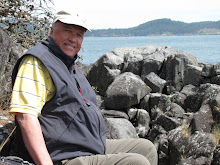People who undergo spontaneous healing of advanced, untreatable cancer tend to share the following characteristics:
They have a deep belief in their body's ability to heal in spite of being told by experts that their illness is terminal.
They regain a sense of control in their lives - a feeling of personal autonomy. They assume responsibility for creating a recovery program that is right for them - they do not simply abdicate responsibility for their treatment to experts.
They undergo a 'spiritual transformation' - an awakening of the true values and aspirations that have lain dormant deep inside themselves. Truly alive - perhaps for the very first time - this spiritual re-awakening brings a new authenticity to their life as they reconnect with their deepest feelings, values and aspirations. Once healed, they often look back upon their illness as a 'gift' that transformed their life.
They bring a new authenticity to their relationships with others.
They fully reassess their lives - often making very significant changes to their diet, life-style, career, goals, and relationships with others.
They often make radically healthful changes in their diet - away from refined, processed foods towards healthful, wholesome foods. They eat more fruits and vegetables and less animal fat, and many become vegetarian. Many begin taking vitamins and other supplements for the first time.
They take more time to simply relax and enjoy their life. For many, daily meditation or prayer becomes an important part of their life.
They learn to 'listen' to their bodies and to surrender to, rather than resist, the day-to-day fluctuations of energy, symptoms and emotions that accompany the healing process.
They reconnect with their sense of community and reclaim the joy that comes from being of service to others. In healing themselves, they facilitate healing in others.
(From website of The Centre For Integrated Healing....Vancouver, B.C.)

